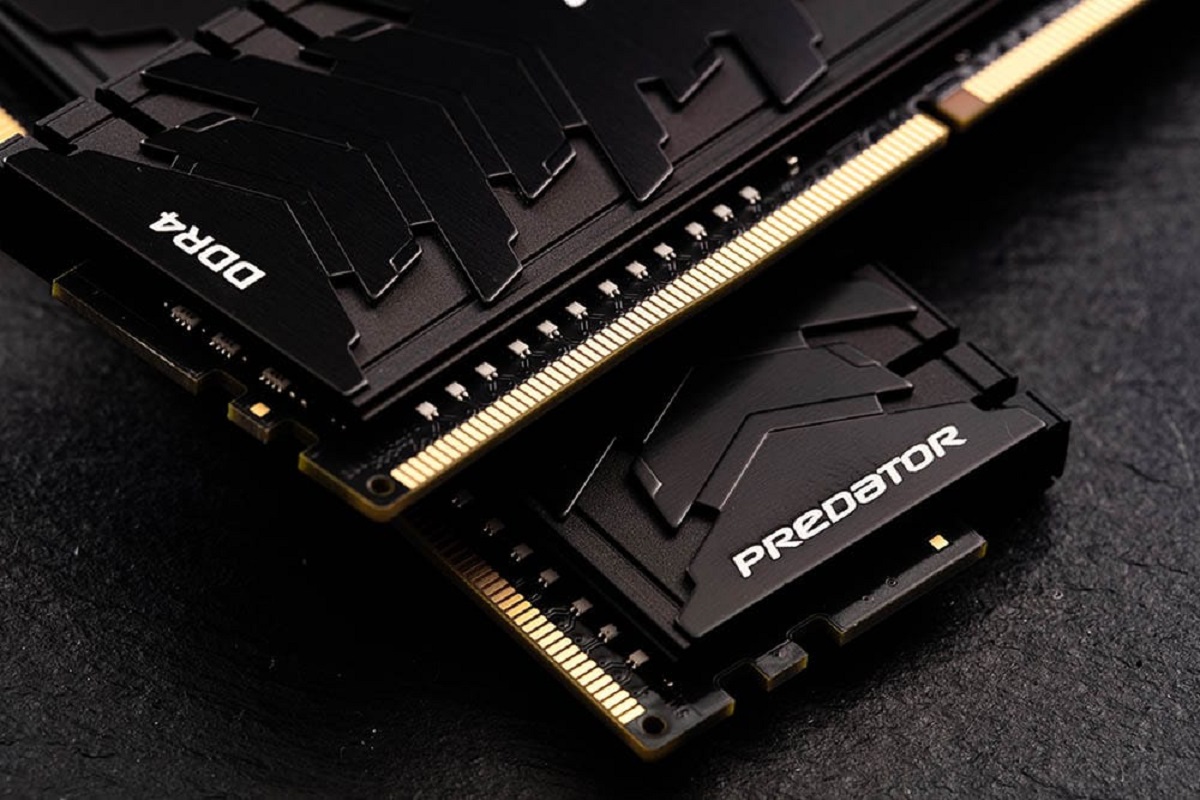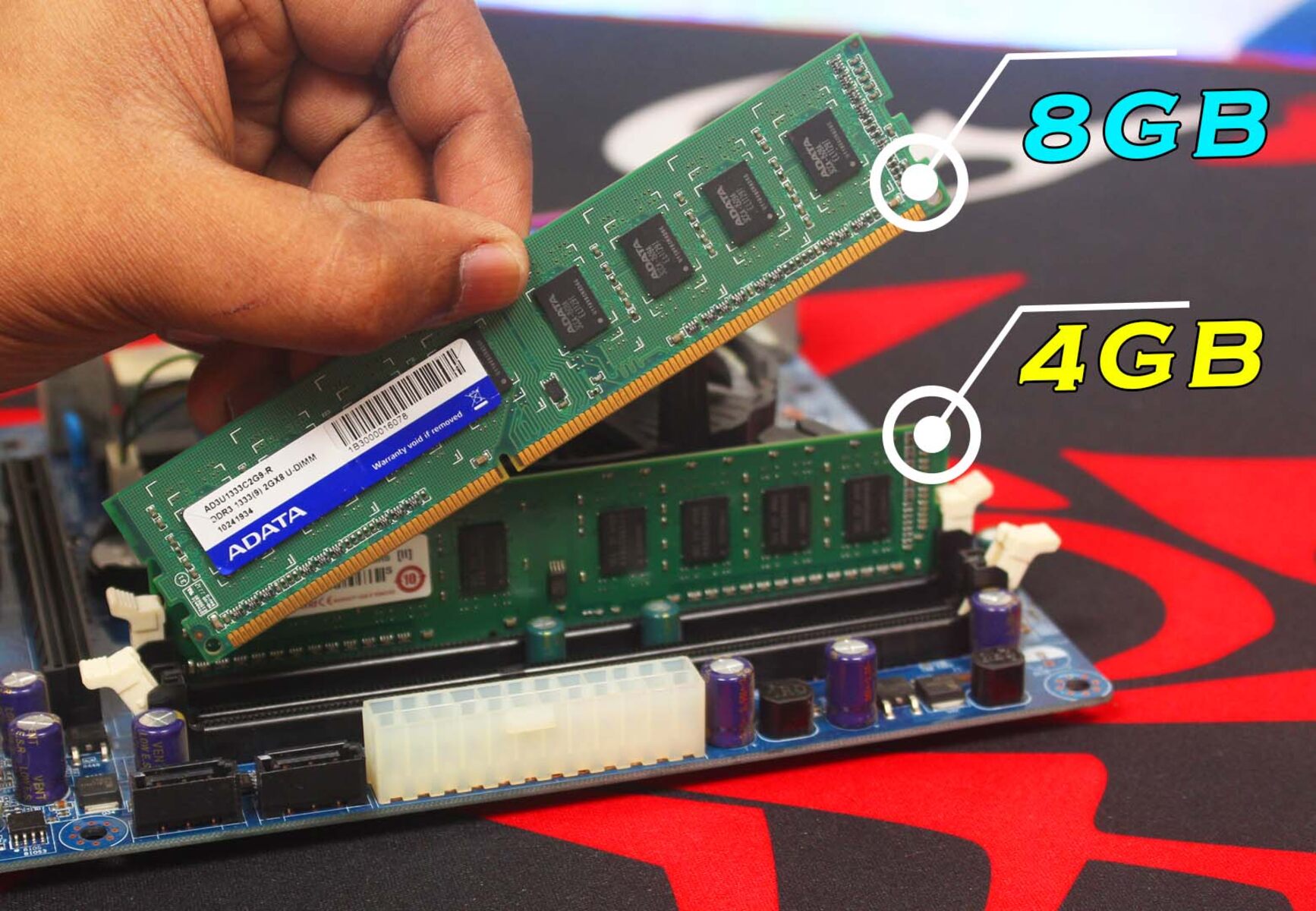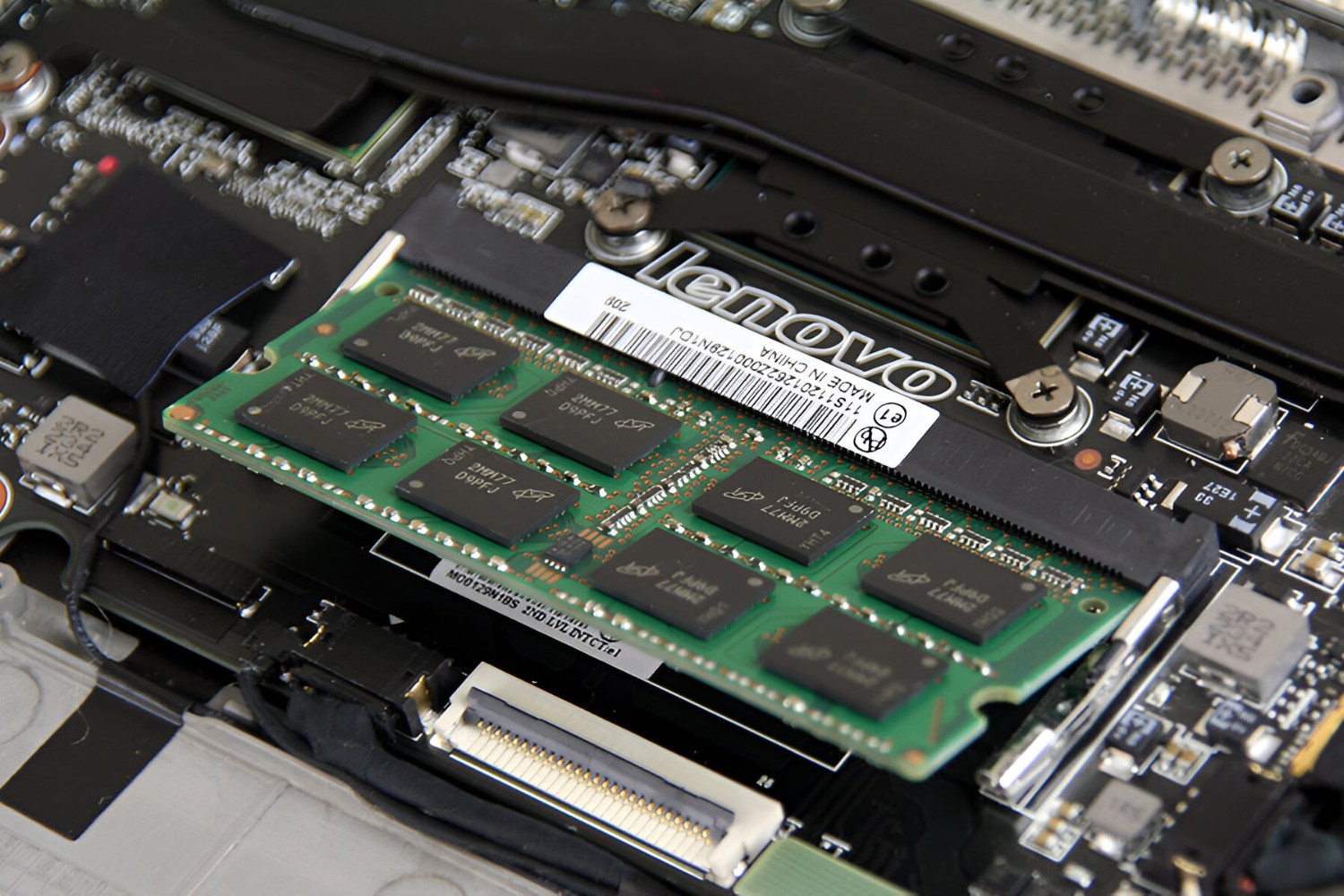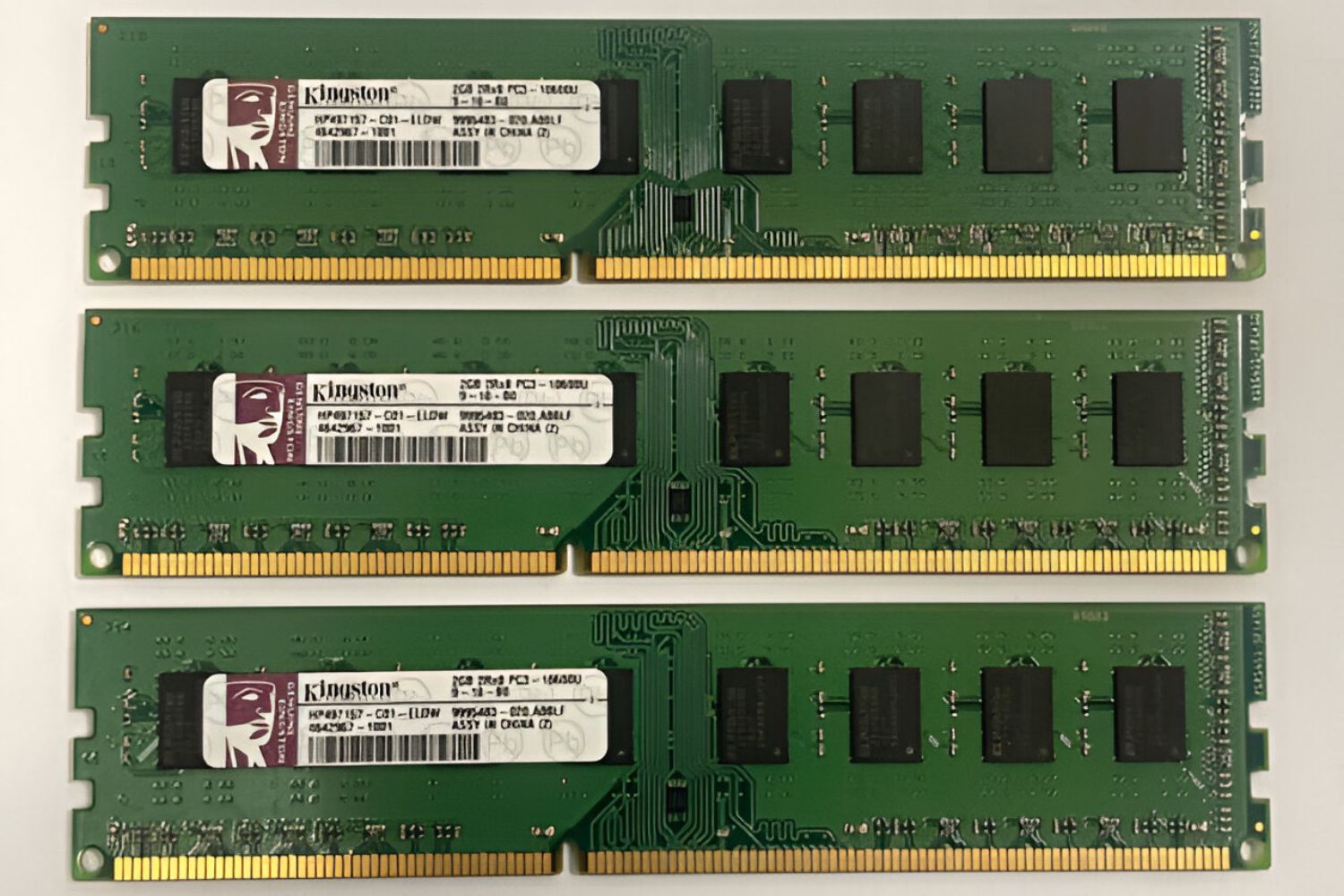Introduction
Welcome to the exciting world of online gaming! In today’s digital era, millions of gaming enthusiasts around the globe are connecting with each other through the power of the internet to embark on thrilling virtual adventures. However, before diving into the captivating realms of online gaming, it is important to understand the crucial role that internet connectivity plays in ensuring a seamless and enjoyable gaming experience.
With the rise of multiplayer games, live streaming, and cloud-based platforms, the demand for high-speed internet has become more significant than ever. The ability to stay connected and compete with gamers from all corners of the world relies heavily on a stable and reliable internet connection. But have you ever wondered how much data online gaming consumes? How can you optimize your internet usage while enjoying your favorite games? In this article, we will explore the intricacies of data usage in online gaming and provide valuable tips to enhance your gaming experience.
Before we delve deeper into data usage, let’s first understand the fundamentals. Online gaming refers to playing video games over the internet, typically on consoles, computers, or mobile devices. This form of gaming allows players to connect with each other, either cooperatively or competitively, through multiplayer modes. It offers a dynamic and immersive gaming experience where interaction, strategy, and skill are key factors for success.
Now that we have a basic understanding of online gaming let’s shift our focus to data usage. Every action you perform while gaming, such as character movement, in-game communication, and downloading updates, generates data that is transmitted between your device and the game’s servers. This data transmission consumes internet bandwidth and contributes to your overall data usage.
In the following sections, we will explore the factors that influence data usage in online gaming and provide insights into the average data consumption of popular games. Additionally, we will share valuable tips to optimize your data usage while gaming and guide you in selecting the right internet plan to support your gaming needs. So, ready your controllers and get ready to navigate the exciting world of data usage in online gaming!
The Importance of Internet Connectivity for Online Gaming
When it comes to online gaming, a stable and fast internet connection is paramount. The quality of your internet connection directly influences your gaming experience, affecting factors such as gameplay responsiveness, graphics, and overall smoothness. Here’s why a reliable internet connection is crucial for online gaming:
1. Low Latency: Latency refers to the delay between your actions in the game and the corresponding response on the screen. In fast-paced multiplayer games, even a slight delay can result in missed opportunities or poor performance. With a fast and stable internet connection, you can minimize latency and ensure real-time responsiveness, allowing you to react swiftly in intense gaming moments.
2. Seamless Multiplayer Experience: One of the key attractions of online gaming is the ability to play with or against other gamers from around the world. This multiplayer experience heavily relies on internet connectivity. With a stable connection, you can join game sessions, communicate with teammates, and engage in cooperative or competitive gameplay without delays, lags, or disconnections.
3. Smooth Game Streaming: In recent years, game streaming platforms and services have gained immense popularity. These platforms allow you to play games directly from the cloud, eliminating the need for powerful hardware. However, smooth game streaming requires a high-speed internet connection with sufficient bandwidth to ensure uninterrupted gameplay and minimal buffering.
4. Timely Game Updates: Online games often receive regular updates, patches, and new content releases, which enhance gameplay, fix bugs, and introduce new features. Without a reliable internet connection, downloading and installing these updates can be slow and tedious, potentially hindering your ability to enjoy the latest game enhancements.
5. Communication with Other Players: Collaboration and communication are vital in many multiplayer games. Whether it’s coordinating strategies, calling for backup, or simply chatting with fellow gamers, a stable internet connection enables clear and real-time communication, enhancing teamwork and social interaction within the gaming community.
Having a solid internet connection is not just about the technical aspects of gaming; it’s also about ensuring an immersive and enjoyable experience. Constant interruptions, lagging gameplay, or sudden disconnections can be frustrating and diminish the overall gaming experience. Investing in a reliable internet service provider (ISP) and selecting an appropriate internet plan can help guarantee a smooth, uninterrupted gaming experience.
In the next section, we will explore the detailed aspects of data usage in online gaming and provide valuable insights into how different factors influence the amount of data consumed during gameplay.
Understanding Data Usage in Online Gaming
Data usage is an important aspect to consider when it comes to online gaming. Every action you take in a game, from character movement to interactions with other players, requires the transmission of data between your device and the game servers. Understanding how data is utilized in online gaming can help you manage your internet usage effectively. Let’s delve into the details:
1. Downloaded Data: Online games are typically downloaded and installed on your device before you can play them. The size of the game file can vary significantly, ranging from a few gigabytes to tens of gigabytes. The initial download is a one-time process and does not count towards your data usage during gameplay.
2. In-Game Data: Once the game is installed, data is transferred back and forth during gameplay. This includes information like player positions, game world details, textures, sounds, and more. The amount of data consumed during gameplay depends on factors such as the complexity of the game, the number of players, and the actions performed.
3. Multiplayer Data: Engaging in multiplayer gameplay increases the amount of data usage. Each player’s actions and movements are transmitted to other players in real-time, allowing for a seamless and collaborative gaming experience. The more players involved, the higher the data usage as more data needs to be transmitted to keep everyone synchronized.
4. Voice Communication: Many online games offer voice communication features for players to communicate with each other during gameplay. Voice chat utilizes additional data for real-time audio transmission. While voice communication enhances teamwork and coordination, it also contributes to higher data consumption during gaming sessions.
5. Game Updates: Online games often receive updates and patches to fix bugs, introduce new features, or enhance gameplay. These updates can range from a few megabytes to several gigabytes in size and are typically downloaded and installed on your device. Keeping your games up to date is important for optimal performance and access to new content, but it’s crucial to consider the data usage involved.
6. Streaming and Broadcasting: Streaming gameplay on platforms like Twitch or YouTube, or broadcasting your gameplay to others, requires significant data usage. Streaming involves transmitting both gameplay video and audio in real-time, which can consume a substantial amount of data. Be mindful of your internet plan’s data limits if you plan on streaming your gaming sessions.
It’s worth noting that different games have varying data requirements. Highly interactive and visually immersive games usually consume more data, while games with simpler graphics and fewer player interactions may utilize less data. Additionally, games that use advanced technologies like virtual reality (VR) or augmented reality (AR) may have higher data requirements due to the complex nature of these experiences.
Understanding how data is used in online gaming allows you to make informed decisions about your internet plan and usage. In the next section, we will explore the factors that affect the amount of data used in online gaming, helping you optimize your data consumption while enjoying your favorite games.
Factors Affecting the Amount of Data Used in Online Gaming
The amount of data consumed during online gaming can vary based on several factors. By understanding these factors, you can make informed decisions to optimize your data usage and ensure a smooth gaming experience. Let’s explore the key factors that influence data consumption in online gaming:
1. Game Type: Different genres of games have varying data requirements. Massively multiplayer online games (MMOs) or open-world games with vast landscapes and detailed environments tend to consume more data. On the other hand, simpler games like puzzle or strategy games may use less data as they do not require real-time communication or large-scale asset streaming.
2. Graphics Quality: The level of graphical detail and quality in a game affects data usage. Games with high-resolution textures, advanced lighting effects, and intricate character models typically require more data to transmit these visual elements. Adjusting the game’s graphic settings, such as reducing the texture quality or disabling certain visual effects, can help lower data usage without significantly compromising the gameplay experience.
3. Online Game Modes: Different game modes come with varying data requirements. Single-player modes generally consume less data as there is no real-time data exchange with other players. In contrast, multiplayer modes, especially in competitive or cooperative online games, involve real-time communication and synchronization between multiple players. These modes typically use more data due to the increased amount of data exchanged between players.
4. Game Server Locations: The distance between your location and the game servers can influence data usage. If you are playing on servers located far from your region, data has to travel longer distances, potentially leading to higher latency and increased data consumption. Choosing game servers closer to your physical location can help optimize data usage and reduce latency.
5. Voice Chat Usage: Voice communication during gameplay adds to data usage. If the game supports voice chat features, enabling them can increase the overall data consumption, particularly during intense multiplayer sessions where continuous communication is necessary. If minimizing data usage is a priority, restricting or disabling voice chat can help in optimizing data consumption.
6. Game Updates and Patches: Regular game updates and patches are essential to keep your games running smoothly and to access new content. These updates often involve downloading and installing new game data, leading to increased data consumption. Keeping games up to date is important but be aware that updating multiple games simultaneously or large updates can quickly use up your available data.
7. Streaming and Video Content: Streaming gameplay to platforms like Twitch or YouTube, or watching gaming-related videos, can consume substantial amounts of data. If you frequently watch gaming streams or videos, be mindful of the data usage involved. Consider adjusting the video quality settings to limit data consumption while still enjoying the content.
By considering these factors, you can make informed choices to optimize your data usage while enjoying online gaming. Adjusting game settings, selecting servers closer to your location, managing voice chat usage, and being mindful of data-intensive activities like streaming can help you make the most of your internet plan and provide a smooth online gaming experience.
In the next section, we will explore the average data usage of popular online games to give you a better understanding of the data consumption you can expect from different gaming experiences.
The Average Data Usage in Popular Online Games
Online gaming has become immensely popular, with a wide variety of games catering to different interests and genres. Understanding the average data usage of popular online games can help you gauge the potential impact on your internet plan and make informed decisions. Here’s a look at the average data consumption of some popular online games:
1. Fortnite: Fortnite, the battle royale sensation, is known for its vibrant graphics and fast-paced gameplay. On average, Fortnite consumes around 100-150 megabytes (MB) of data per hour for general gameplay. However, engaging in more intense online battles, participating in voice chat, or streaming gameplay can increase the data usage to around 200-300 MB per hour.
2. League of Legends: League of Legends (LoL) is a popular multiplayer online battle arena (MOBA) game known for its strategic gameplay. On average, LoL consumes around 50-100 MB of data per hour of gameplay. However, this number can vary depending on the duration of the matches and the intensity of player interactions.
3. Overwatch: Overwatch is a team-based first-person shooter (FPS) game that features intense multiplayer battles. On average, Overwatch consumes around 80-120 MB of data per hour of gameplay. The data usage may increase during competitive matches or when using voice chat to communicate with teammates.
4. World of Warcraft: World of Warcraft (WoW) is a massively multiplayer online role-playing game (MMORPG) that takes players on epic adventures in a fantasy world. On average, WoW consumes around 40-80 MB of data per hour for typical gameplay. However, participating in large raids or playing with high graphic settings can increase the data usage.
5. Apex Legends: Apex Legends is a popular battle royale game that combines team-based gameplay with unique character abilities. On average, Apex Legends consumes around 100-150 MB of data per hour. The data usage may increase during intense firefight situations or when using voice chat for team communication.
These are just a few examples of popular online games, but it is important to note that data usage can vary based on several factors, including the game settings, game modes, and the duration of gameplay sessions. Additionally, the data consumption can also be influenced by updates, patches, and downloadable content (DLC) releases, which may require larger data downloads.
It’s worth mentioning that these figures are rough estimates and can differ based on individual gameplay habits, internet connection stability, and the specific game versions. Therefore, it is advisable to monitor your data usage while gaming and keep track of how different games impact your internet plan.
By having a better understanding of the average data usage in popular online games, you can plan your internet usage accordingly and choose an appropriate internet plan that can support your gaming needs without exceeding your data limits.
In the next section, we will share some tips to help you reduce data usage in online gaming, enabling you to optimize your internet plan and enjoy uninterrupted gaming sessions.
Tips to Reduce Data Usage in Online Gaming
Online gaming can quickly consume a significant amount of data, especially if you engage in long gaming sessions or play data-intensive games. To help you optimize your data usage and make the most out of your internet plan, here are some tips to reduce data usage in online gaming:
1. Monitor Data Usage: Keep track of your data usage while gaming. Most modern consoles and gaming platforms provide options to monitor data consumption. By regularly checking your data usage, you can identify any unexpectedly high usage patterns and adjust your gaming habits accordingly.
2. Limit Background Applications: Close any unnecessary background applications or programs on your gaming device. Applications like web browsers and streaming platforms may continue to consume data even while you’re gaming. Closing these applications can free up bandwidth and reduce data usage while playing.
3. Adjust Game Settings: Check the graphics and video settings in your game options menu. Lowering the texture quality, resolution, and disabling unnecessary visual effects can significantly reduce data usage. Adjusting these settings may slightly impact graphics quality but can help optimize data consumption without sacrificing gameplay experience.
4. Optimize Game Updates: Game updates and patches often come with large data downloads. To conserve data, schedule updates to occur during off-peak hours or when you have unlimited data available. If a game offers an option to download updates in the background, enable this feature to avoid interruptions during gameplay.
5. Manage Voice Chat: Voice chat during multiplayer games can contribute to higher data usage. Consider limiting or disabling voice chat if it’s not essential or if you’re experiencing data constraints. Alternatively, you can utilize external communication platforms to chat with teammates while reducing the data consumed within the game.
6. Opt for Physical Copies: If you have limited data and are purchasing new games, consider buying physical copies instead of digital downloads. Physical copies typically require smaller initial downloads and rely less on data consumption during gameplay.
7. Set Data Limits on Consoles: Some gaming consoles allow you to set data limits or receive notifications when you’re approaching a certain data threshold. Utilize these features to stay aware of your data consumption and avoid exceeding your plan’s limits.
8. Use Wi-Fi When Available: If possible, connect your gaming device to a Wi-Fi network instead of using cellular data. Wi-Fi connections often have higher data allowances and faster speeds, allowing for a smoother gaming experience without worrying about data usage constraints.
9. Consider Data-Saving Features: Some games offer data-saving options within their settings menu. These features can help reduce data consumption by optimizing network usage or compressing data while maintaining acceptable game performance. Explore these options to minimize data usage without compromising gameplay quality.
10. Keep an Eye on Background Downloads: Be cautious of other devices on your network that may be conducting large downloads or streaming high-definition content while you’re gaming. These activities can consume considerable bandwidth and impact your gameplay experience. Coordinate with others using your network to ensure optimal data usage for gaming.
By implementing these tips, you can effectively reduce data consumption in online gaming. However, it’s essential to strike a balance between optimizing data usage and maintaining a satisfying gaming experience. Adjust settings and monitor your data consumption to find the right balance for your gaming habits and internet plan limitations.
In the next section, we will discuss the importance of choosing the right internet plan to support your online gaming needs.
Choosing the Right Internet Plan for Online Gaming
When it comes to online gaming, selecting the right internet plan is crucial to ensure a seamless and lag-free gaming experience. Here are some factors to consider when choosing an internet plan for online gaming:
1. Internet Speed: Internet speed, measured in Mbps (megabits per second), is a critical factor for online gaming. Look for plans that offer high-speed connections, as faster internet speeds reduce latency and provide smoother gameplay. Aim for a minimum download speed of 10-25 Mbps for optimal online gaming performance.
2. Bandwidth and Data Allowance: Consider the bandwidth and data allowance offered by the internet plan. Bandwidth refers to the amount of data that can be transmitted over your internet connection, while data allowance determines the maximum amount of data you can use within a specific billing cycle. Look for plans with generous data allowances or unlimited data to avoid interruptions or overages while gaming.
3. Latency and Ping: Latency, often measured in milliseconds (ms), is the delay in time it takes for data to travel from your device to the game servers and back. Lower latency ensures a more responsive gaming experience. Additionally, pay attention to the ping value provided by the internet plan, as a lower ping signifies better network performance and reduced lag.
4. Connection Type: Consider the different types of internet connections available in your area. DSL, cable, fiber-optic, and satellite connections each have their own advantages and disadvantages in terms of speed, stability, and latency. Research the available options and choose one that offers the best balance for online gaming requirements.
5. Provider Reliability: Research the reliability and reputation of internet service providers (ISPs) in your area. Look for providers with a track record of stable and consistent connections, as interruptions or frequent outages can significantly impact your gaming experience. Check customer reviews and ask for recommendations from other gamers in your locality.
6. Customer Support: Consider the level of customer support offered by the ISP. In case of any technical issues or concerns, prompt and effective customer support can be vital in resolving problems quickly and minimizing downtime. Look for providers with 24/7 support availability through various channels such as phone, email, or live chat.
7. Service Level Agreements (SLAs): Evaluate any service level agreements provided by the ISP. SLAs outline the level of service you can expect, including uptime guarantees, response times, and compensation for service interruptions. Having a clear understanding of the SLAs can give you peace of mind and assurance of a reliable internet connection for gaming.
8. Cost and Affordability: Finally, consider your budget and the overall affordability of the internet plan. Compare the cost of different plans and ensure that the chosen plan provides a balance between performance, data allowance, and price. Remember that investing in a quality internet plan tailored for online gaming can greatly enhance your gaming experience.
By considering these factors and understanding your online gaming needs, you can choose an internet plan that provides the necessary speed, stability, and data allowance to support your gaming requirements. Remember to regularly monitor your internet usage, review your plan as your gaming habits change, and consider upgrading if necessary to maintain an optimal gaming experience.
In the next section, we will wrap up our discussion on online gaming and highlight the key points covered throughout the article.
Conclusion
Online gaming has revolutionized the way we play and connect with others in the gaming community. Understanding the importance of internet connectivity, data usage, and choosing the right internet plan are crucial elements to ensure a smooth and enjoyable gaming experience.
We explored the significance of a stable internet connection for online gaming, highlighting how low latency and seamless multiplayer experiences greatly contribute to the overall enjoyment of gaming sessions. We also delved into the intricacies of data usage in online gaming, discussing factors that influence the amount of data consumed, and providing insights into the average data usage of popular online games.
Furthermore, we provided valuable tips to reduce data usage in online gaming, including monitoring data usage, adjusting game settings, managing voice chat, and utilizing Wi-Fi connections when available. We also emphasized the importance of choosing the right internet plan for gaming, considering factors such as internet speed, data allowance, and provider reliability.
By implementing these tips and making informed decisions about your internet plan, you can optimize your data usage, reduce latency, and ensure a seamless gaming experience. Additionally, staying aware of your data consumption, monitoring updates, and being mindful of bandwidth usage can help you avoid unexpected data overages or interruptions in gameplay.
Remember, online gaming should be a fun and immersive experience. By understanding the factors that influence data usage, managing your internet connection effectively, and selecting the right plan, you can enjoy uninterrupted gaming sessions, connect with fellow gamers, and embark on thrilling virtual adventures.
So, gear up, embrace the digital realm, and let the games begin!

























